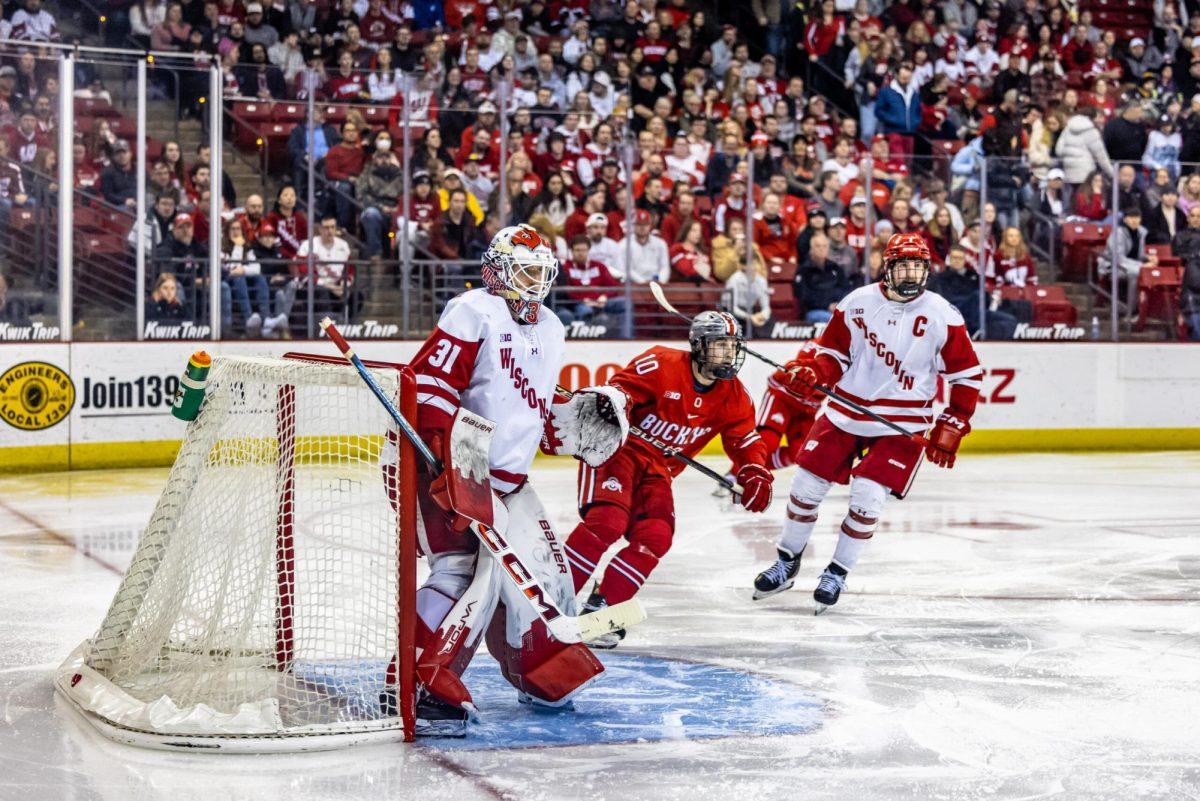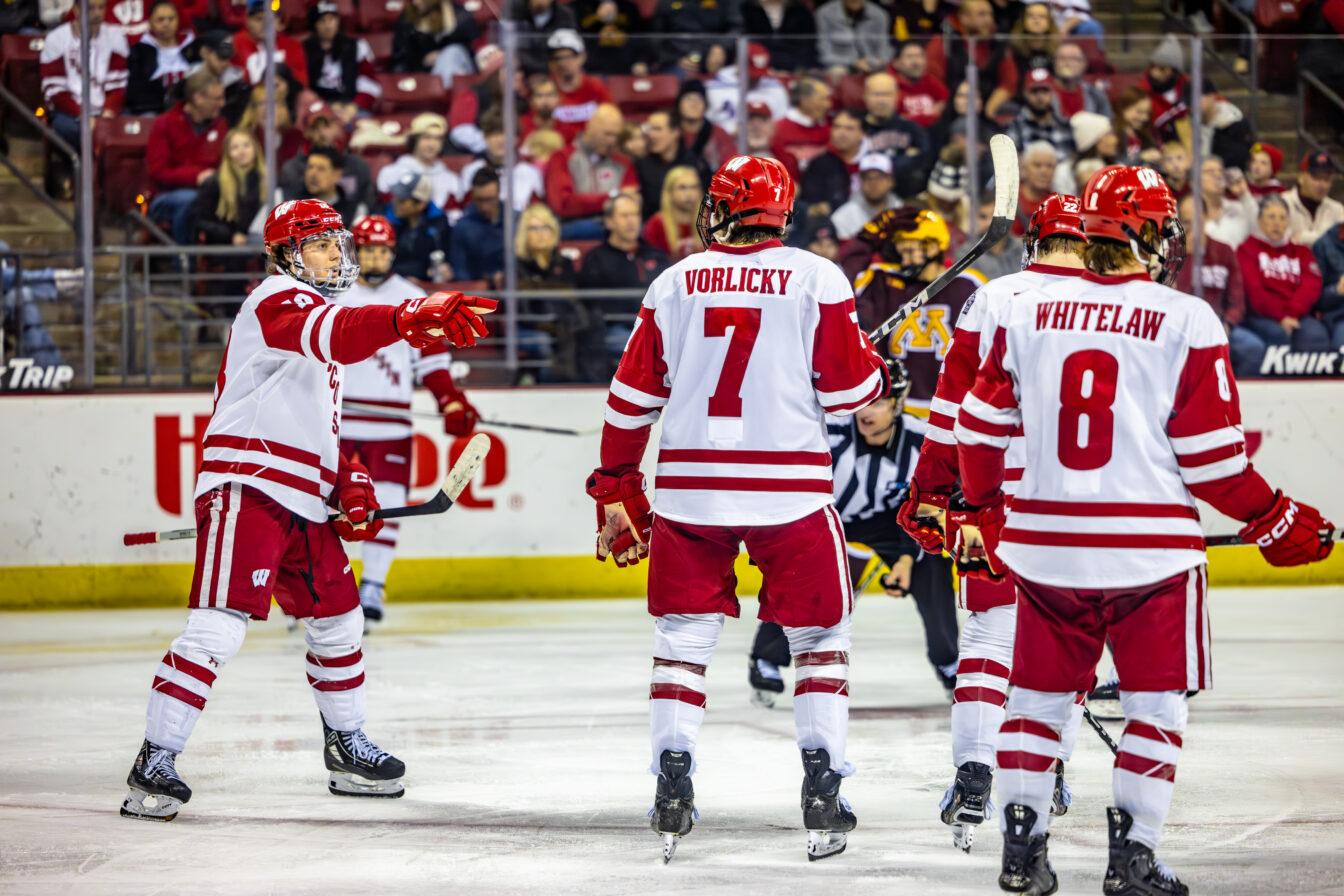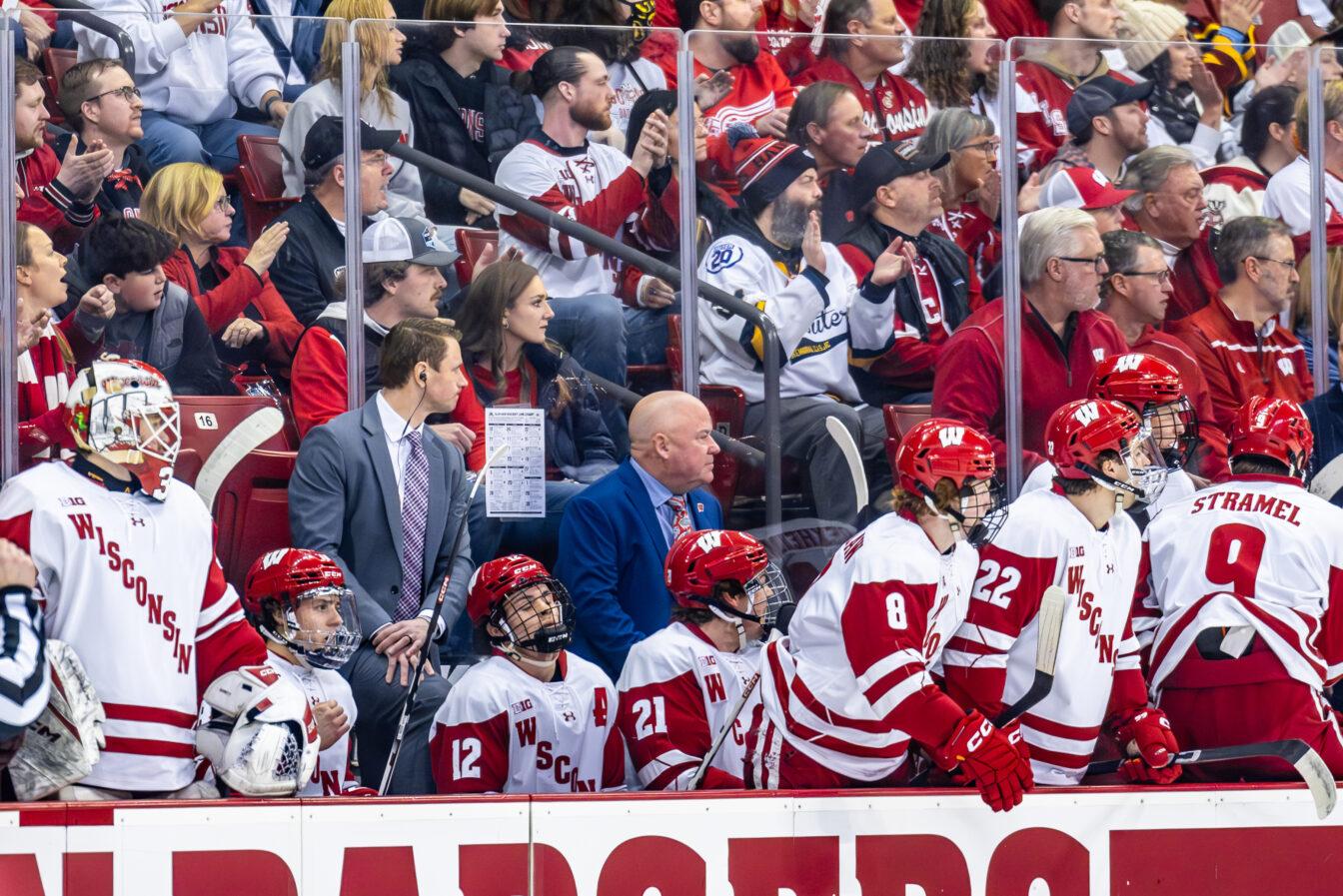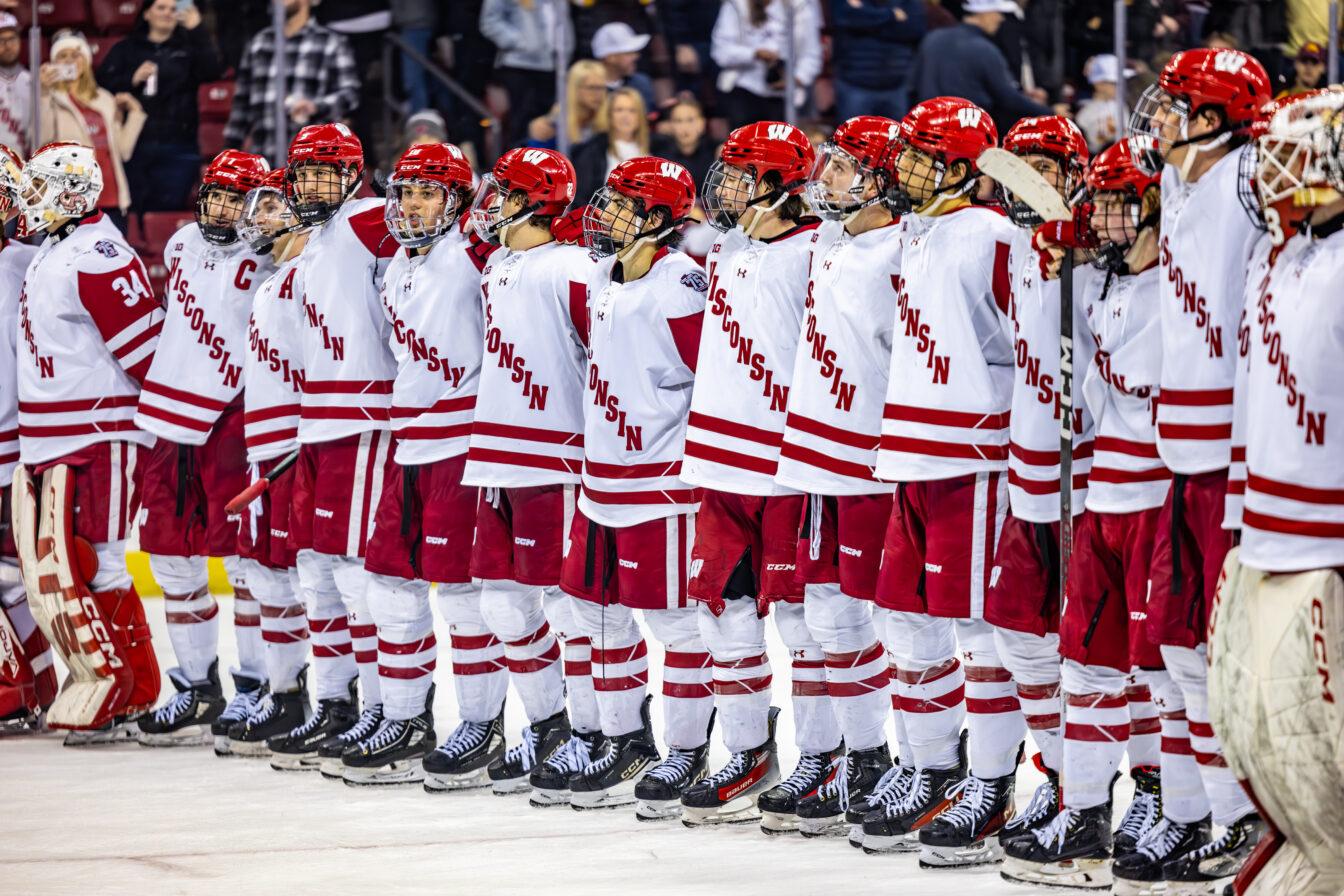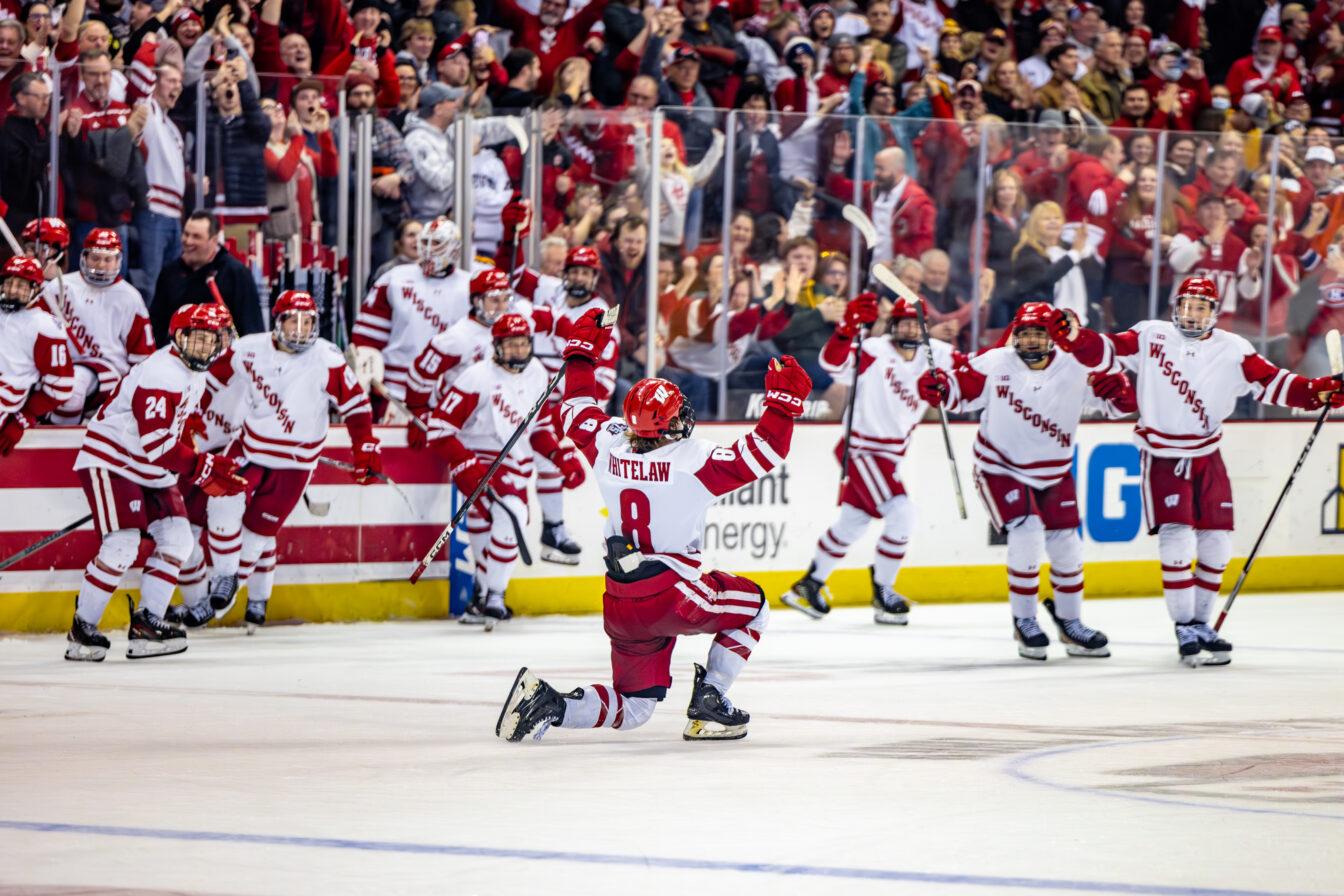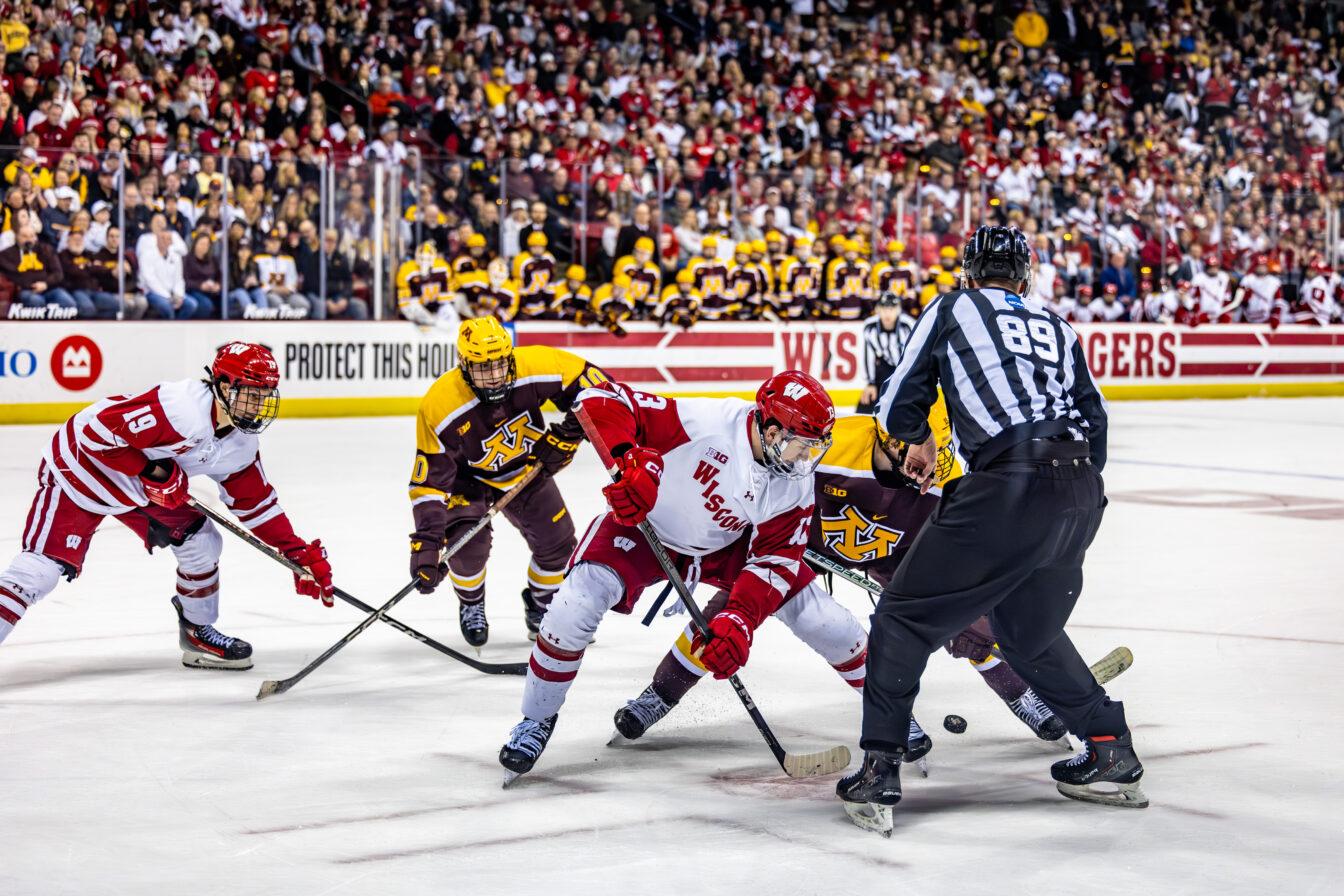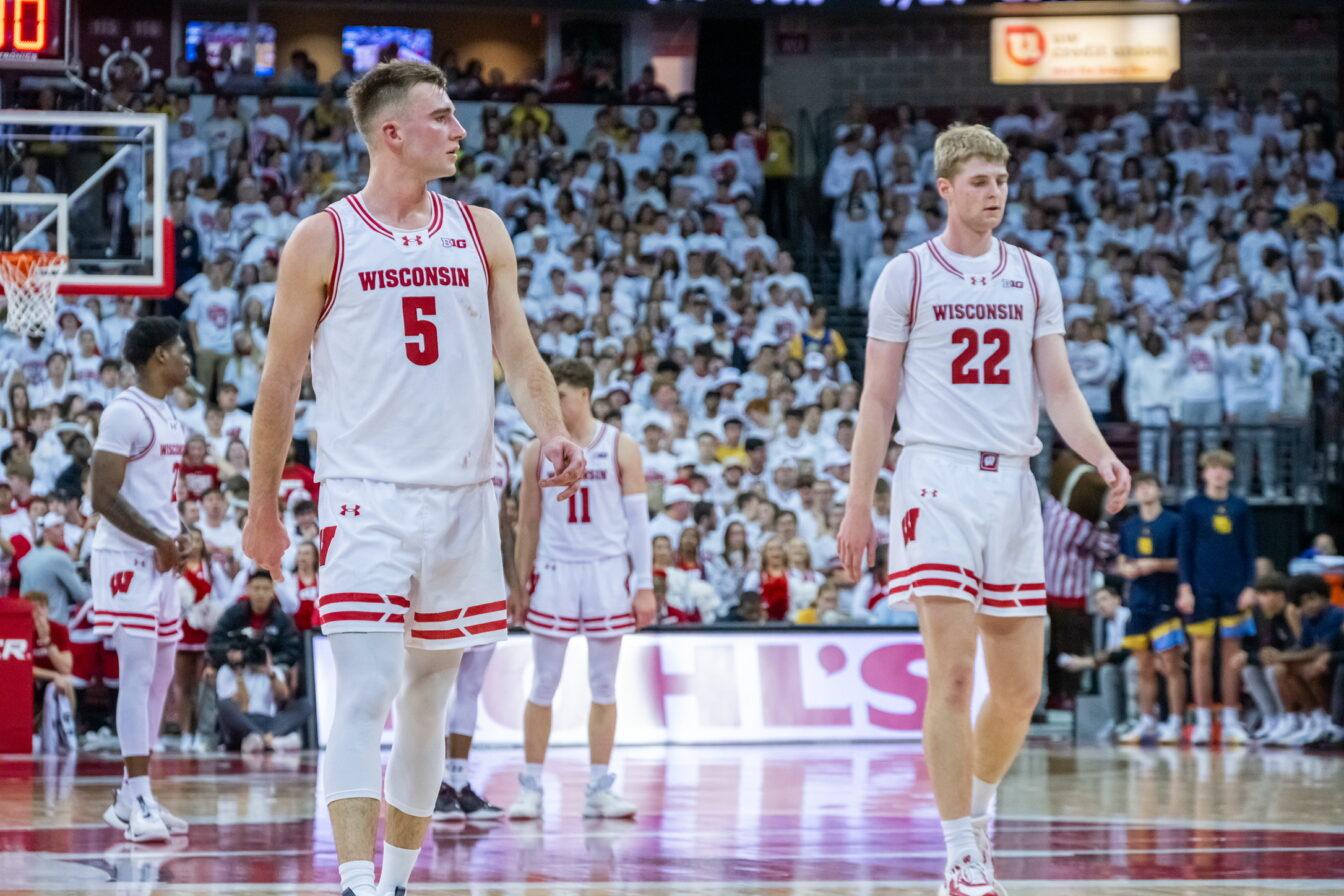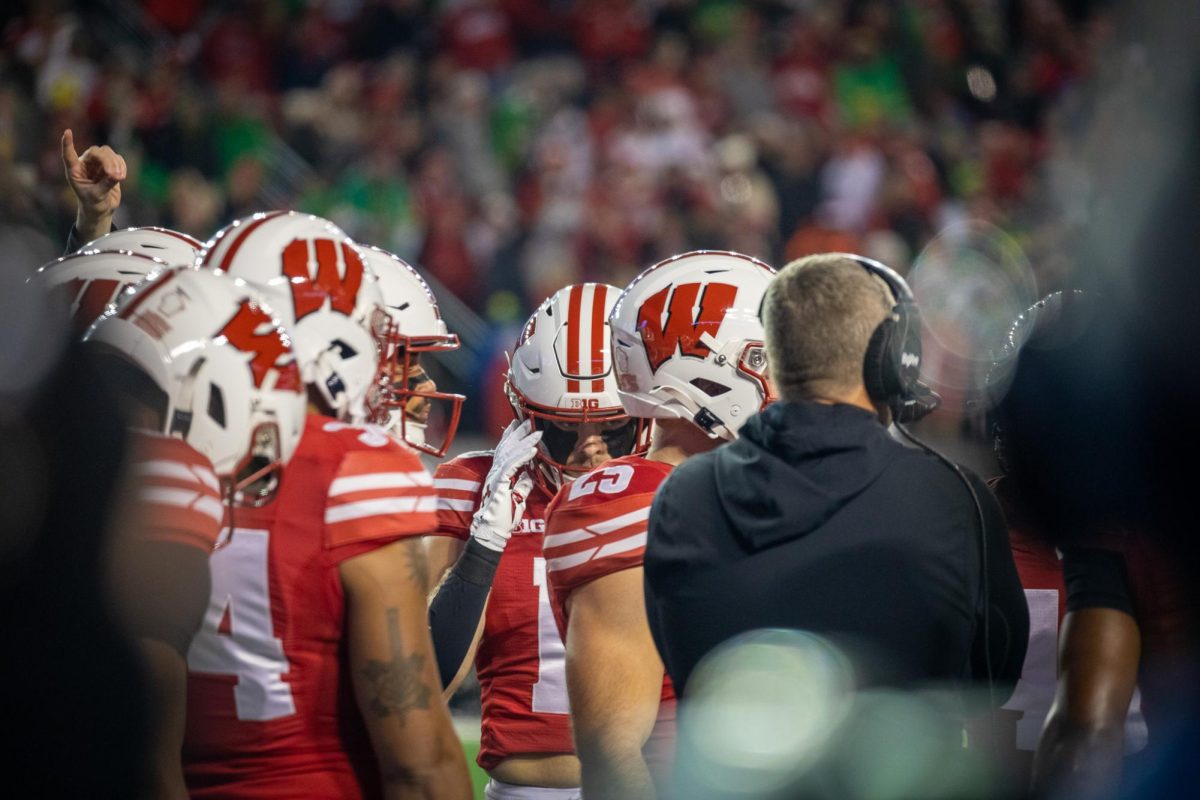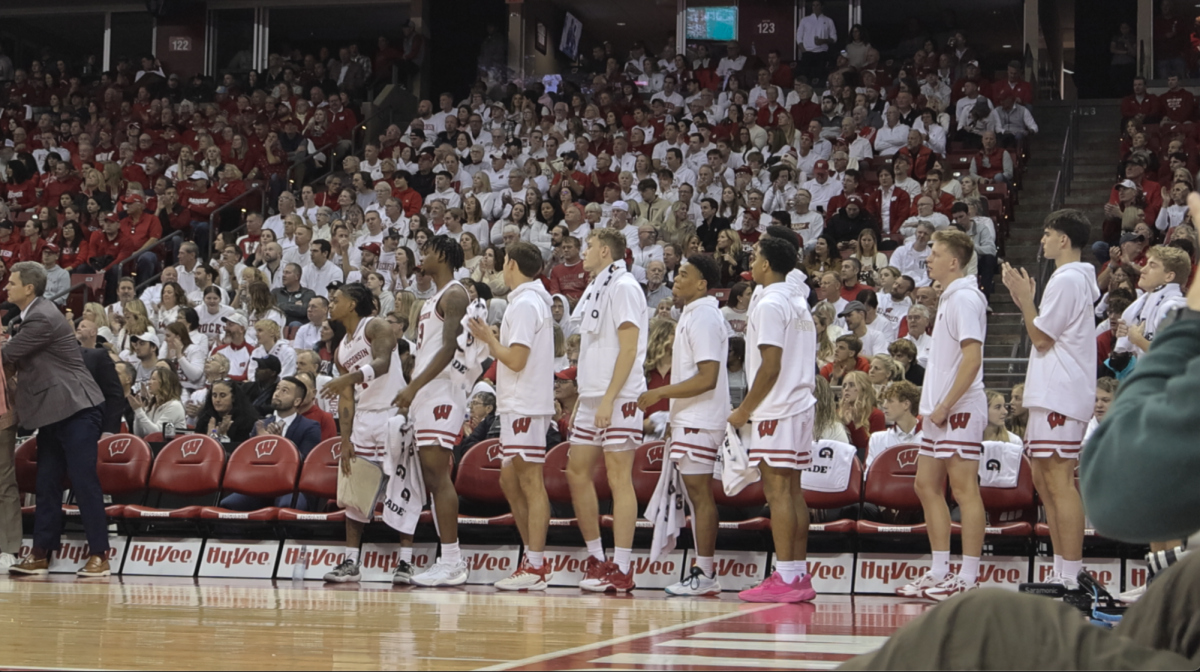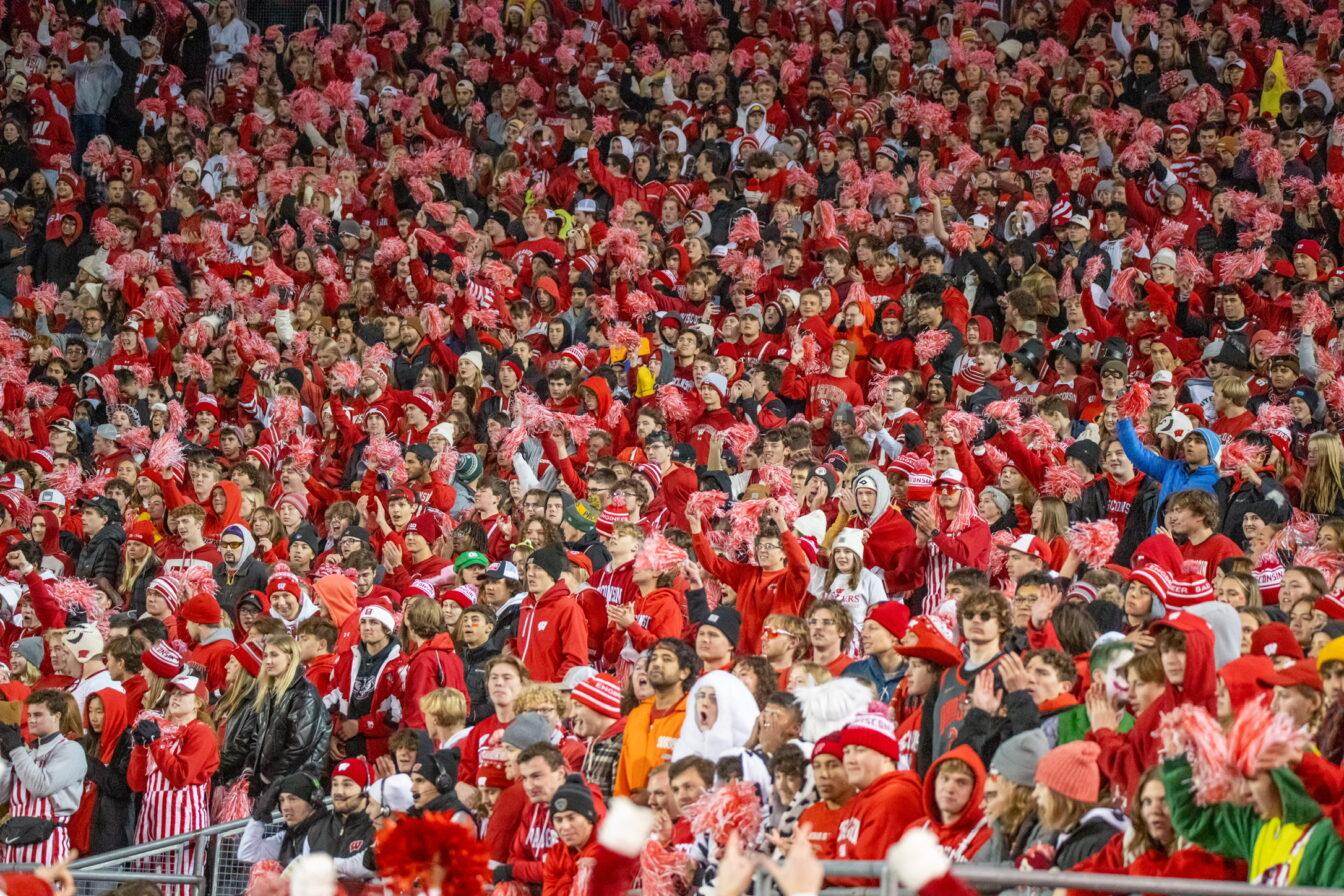
Standing at about 5-foot-10, Mike Eaves, 55, is not intimidating in stature. He will be the first to make jokes about his physical appearance, which does not bear the extreme marks of a former hockey player – no noticeable missing teeth and no telltale crooked nose that was broken one time too many.
Looking at him, you would not guess the history behind the man; you would not assume he has won a national championship for Wisconsin as a player and a coach nor would you think that he is the head coach of one of the most storied collegiate hockey programs even talking with him. Based on his story, he’s a supremely humble man.
From hockey star to coach
Growing up north of the border in Windsor, Ontario, with a hockey coach for a dad, deciding to lace up the skates was an easy choice for Eaves.
“I can remember five years old, being on a pond, skating around,” Eaves said. “With my dad being a coach and a teacher, if you wanted to be with dad, where’d you hang out? At the rinks. We were stick boys, [and] we got tape for the guys at the end of practice. When we were a little older, we could go on the ice with the university guys, which was a thrill, to shoot on the big goalies and stuff.
“It’s been our teacher. Through hockey we learned about life – the tough times, the good times, the discipline, hard work, the joy of being with a team when you win. It’s been our path of learning about life. It’s been a big part of our family’s life.”
As he grew older and college hockey became more and more of a reality, Eaves found himself deciding between Michigan and Wisconsin. He was never able to make it to a game in Madison, and admitted he was almost completely sold on Michigan before setting foot on Wisconsin’s campus.
The final, decision-making factor was simply the unique feel of Madison. Despite never seeing the Badgers play with his own eyes, Eaves committed to UW.
“If I hadn’t promised Wisconsin that I was going to come on a visit, I would have said I’m coming [to Michigan],” Eaves said. “I had to come after my season; there was no ice in the Coliseum, never saw a game. My knowledge of college hockey was limited basically from growing up in Canada. I didn’t know a lot about [head coach Bob Johnson].
“What was the deal breaker was walking up to the top of Observatory Drive by [Liz Waters] … and looking down at the lake and thinking ‘Man, this is beautiful.’ I remember thinking to myself that even if I didn’t play hockey, I would be happy here.”
From 1974-78, Eaves became one of Wisconsin’s most prolific forwards, amassing a program-record 267 points through 160 games in his career at UW. In his junior and senior seasons he earned All-American honors and a national title in 1977 to add to his list of accomplishments.
After dabbling in the NHL for several years both as a player and a coach, Eaves was not quite done with his alma mater yet. Twenty-four years later, he returned to Wisconsin in 2002 for the opportunity to coach at UW.
Now at his 10-year mark as the head coach of Wisconsin, Eaves has already recreated some of the success he enjoyed as a player.
Boasting a 209-156-44 career record through those 10 years, a national championship in 2006 – only four years into his tenure at UW – a title run in 2010 that fell one game short and Wisconsin’s first Hobey Baker recipient that same year in Blake Geoffrion, Eaves added to Wisconsin’s formidable hockey history once again, this time as a coach.
“It’s interesting as a player; when you win, you’re so emotionally bound in that,” Eaves said. “When we won in ’77, from the time I realized we won the game, because it was in overtime, ’til we got out of the locker room, I don’t remember being on the ice. I was so euphorically high.
“People show me pictures, and I have no recollection. It’s because we were goofy. … As a player you’re going bananas, but as a coach you want to look every guy in the eye and hug them and thank them and your staff and your coaches because there’s a satisfaction of obtaining a goal. It’s a big difference, and I’ve been blessed to be able to experience both.”
But that’s not to say Eaves has not faced his fair share of challenges.
With the 2011-12 season being such a landmark as his 10th year as coach, certainly a 17-18-2 record with a 10th place conference finish was a bit lackluster. With 20 of his 26 players being underclassmen, youth was a tough obstacle for the Badgers to overcome throughout the season. While the end of the season showed promise – especially for what’s to come next season – the tremendous amount of youth was largely a result of the early departures plaguing college hockey.
Players have the option of leaving even after a year to pursue professional endeavors if they want. And unfortunately for Eaves and coaches around the league, there is not much of a solution other than hoping a player wants to keep playing in college and finish not only their collegiate career, but also their college degree.
Coaches can make or break teams. Athletes either love or hate them; there is not much of a middle ground. When it comes to Eaves, you’d be hard-pressed to find a single negative comment about the lifelong Badger.
“Working with him was, … for me, the masters in coaching,” Mark Osiecki, a former UW assistant coach under Eaves and current head coach at OSU, said. “I learned a tremendous amount of hockey knowledge from him, and it was a great working experience for me.
“I think his management of time was outstanding. I think his communication with us as a staff and with his players was outstanding, and then there’s the hockey side. Obviously as a player, Mike is a tremendous player – gifted offensively, someone who worked hard for everything he obtained in hockey.”
Even his players describe his love for the game and the energy he continues to bring to it on a daily basis – almost as if he were still a player.
“It’s been cool being here with him as our coach,” freshman goaltender Joel Rumpel said. “He definitely brings a kind of new perspective to the game. He just loves showing up to the rink every day. I guess the guys on our team just kind of feed off that. He’s so energetic with everything in the sport, so it’s nice to have that energy in the room.”
While he wants to put together winning teams, Eaves also cares about shaping his players into adults, giving them important life lessons they can take with them to the pros or wherever they may go, much as if they were his own children.
“I think the things that juice us up on a personal level with these young men is to see their growth,” Eaves said. “We go through struggles. We fall in mud together; we pick each other up and brush each other off. But to their growth while they’re here, and probably the true measuring stick … is five years after they graduate.
“Where are they then, what are they doing, are they successful people then? That’s really good feedback; that’s the delayed gratification of being a coach/parent. A lot of days you don’t see all your hard work [until years later] because the seeds have been planted but they don’t come to fruition.”


